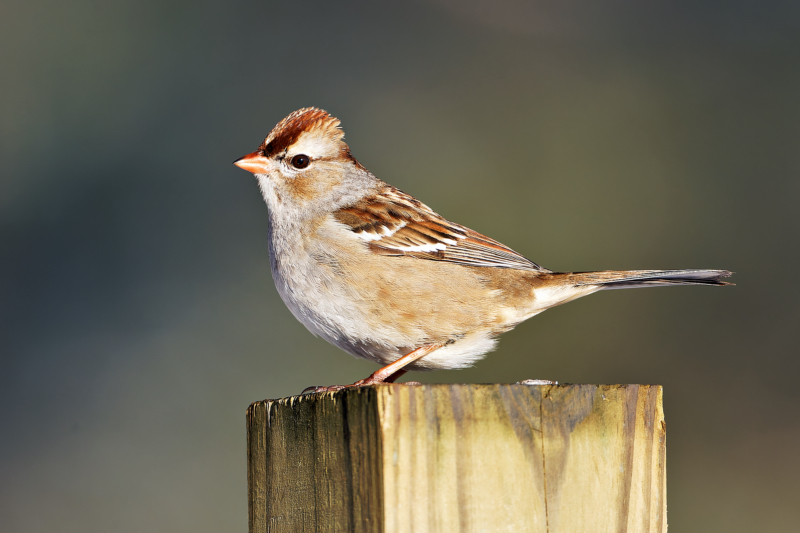I photographed this immature White-crowned Sparrow on a wooden post in my yard here in Arkansas, on a bright, sunny morning with soft light enhancing its plumage. I had my camera set up on a tripod while sitting near a feeder, waiting for the right moment.

Recognizing Immature White-crowned Sparrows
For more in-depth information about White-crowned Sparrows, visit the Cornell Lab of Ornithology’s page on White-crowned Sparrows.
- Plumage: Immature White-crowned Sparrows have a reddish-brown and white striped head, unlike the bold black-and-white stripes of adults. They molt into adult plumage by their first breeding season, which typically occurs in the spring following their hatching.
- Song Development: Male sparrows learn their songs from their surroundings, often staying close to where they were raised. Their songs reflect regional dialects and adapt to environmental soundscapes.
- Migration: These sparrows are impressive travelers. Alaskan White-crowned Sparrows, for example, migrate roughly 2,600 miles to Southern California. One individual was tracked covering 300 miles in a single night, using GPS technology to monitor its journey.
- Sleep Patterns: During migration, they can sleep with one half of their brain while the other half stays awake, allowing them to stay alert for long periods. This fascinating ability has been studied for applications in human fields like shift work.
Image Details
- Date: 02/05/11
- Time: 09:31 AM
- Camera: Canon EOS-1D Mark III
- Lens: Canon 500mm f/4
- Settings:
- ISO: 500
- Aperture: f/5
- Shutter Speed: 1/1600
- Exposure Compensation: +0.3
- Mode: Aperture Priority
This backyard moment reminded me how much there is to learn and appreciate about these remarkable little birds. Observing this sparrow taught me about their adaptability and resilience, especially in how they migrate such great distances and adjust to their surroundings while still maintaining unique behaviors and songs.